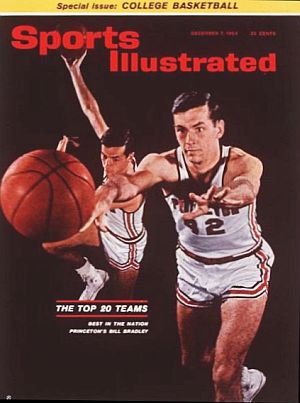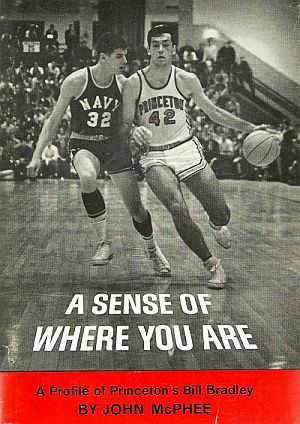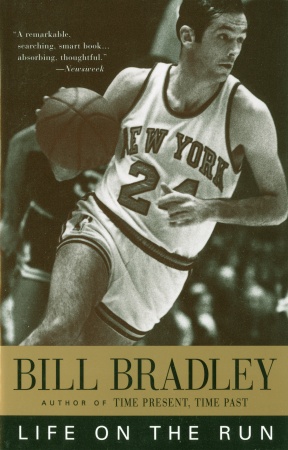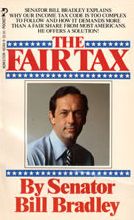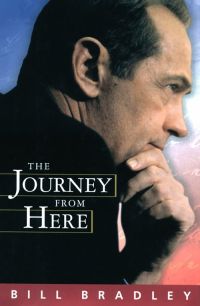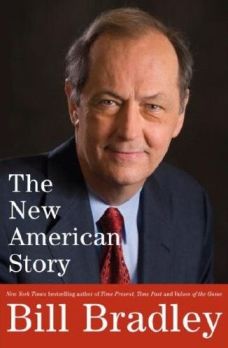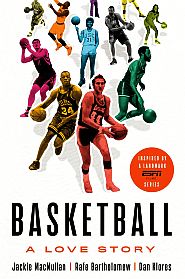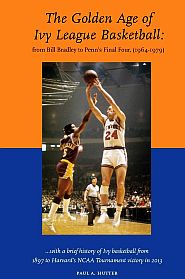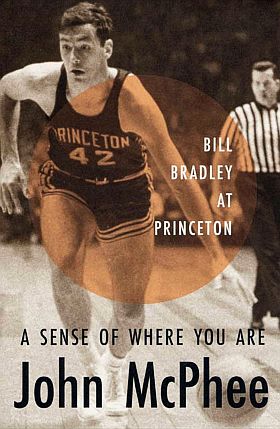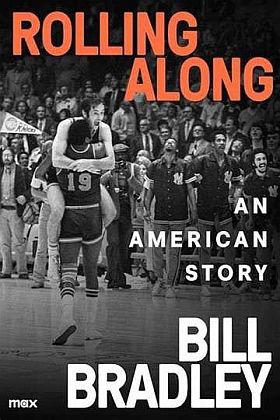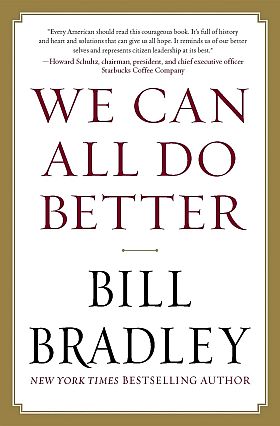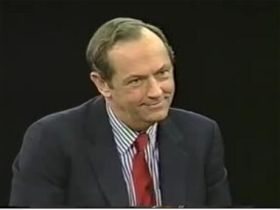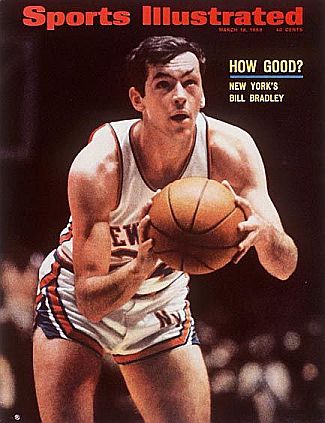
Bill Bradley on the March 18, 1968 cover of ‘Sports Illustrated,’ early in his ten-year career with the New York Knicks professional basketball team.
In the 1950s at Crystal City High School, in Crystal City, Missouri, Bradley first drew national attention by becoming a scholastic All-American. At Princeton, too, he set the nets on fire. In fact, by 1965, he would be named the nation’s best college player. Profession-ally, with the New York Nicks, he posted an impressive ten-year career, helping land two NBA championships, and was selected to the Hall of Fame. In politics, he became a much-respected Democratic Senator and a highly-touted, “thinking man’s” presidential candi-date. But first came the basketball.
William Warren “Bill” Bradley was born in Crystal City, Missouri, July 28, 1943. He began playing basketball in fourth grade and within a few years he was headed for his first rounds of fame as a high school star. At Crystal City High, he scored 3,068 points, and was twice named a high school All-American. A top student with excellent grades, Bradley also attained the Distin-guished Eagle Scout Award. He was, in many ways, the all-American boy.
But Bill Bradley was also an incredibly hard worker. He became an adherent of “determined practice” long before it was a topic of interest for academics and journalists such as Malcolm Gladwell (Outliers, 2008). As a high school kid, Bradley set his own rigid training course to become a superior basketball player.
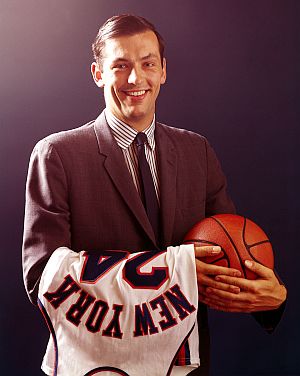
Young Bill Bradley, early NY Knicks, June 1967, Life studios.
Special Sight
Bill Bradley also had something else: incredible eyesight. He was blessed with unusually wide peripheral vision, which came in handy on the basketball court. While most people’s horizontal field covers 180 degrees, Bradley’s went to 192 degrees. His vertical field was better, too. Most people can see 47 degrees upward; Bradley could see 72 degrees. This meant that peripherally, he could practically see behind himself, and vertically, he could very nearly see the basket even when looking at the ground. This of course, gave Bradley an edge as a basketball player, seeing things others could not, as well as detecting threats or seizing opportunities earlier than others might.
Given his top grades in high school and his athletic prowess, Bradley — by then, 6′ 5″tall — received 75 scholarship offers from colleges and universities. Although he had made a commitment to attend Duke University he decided instead to go to the Ivy League’s Princeton even though Ivy League schools then offered no athletic scholarships.
 A cast bronze statue of Bill Bradley, Princeton basketball star, by Harry Weber; installed on the Princeton campus in 2014 outside Jadwin Gymnasium. |
A Princeton Tiger
Bradley’s basketball career at Princeton was nothing short of amazing. He led the school to three straight Ivy League championships (it might have been four had he been allowed to play as a freshman).
At Princeton, Bradley scored almost 1,000 points more than any other Princeton player since. He still holds the top 11 single-game scoring totals in the school’s history.
In the 1965 NCAA championship tour-nament, Bradley’s play is ranked as one of the best ever, with one 58-point game that stands out among Final Four games. And during a time when professional players were barred from Olympic contests, Bradley also captained the gold medal-winning U.S. basketball team at the 1964 Summer Olympics in Tokyo.
In his stellar career at Princeton, Bradley scored 2,503 points, averaging 30.2 points per game. In 1965, he became the first basketball player chosen as winner of the James E. Sullivan Award, presented to the United States’ top amateur athlete in the country. During his college years, Bradley had some memorable games and a few singular accomplishments. As a freshman he sank 57 successive free throws, a record then unmatched by any other player, college or professional. As a sophomore he led the league in rebounds, field goals, free throws, and total points. In one NCAA tournament game his sophomore year against St. Joseph’s in Philadelphia, he turned in a record-breaking 40 point performance. As he left that game after fouling out, he was given a standing ovation. In his junior year, he scored 51 points in a game against Harvard, more than the entire opposing team had scored before he was taken out. Bradley’s 33.1 points-per-game average that season set an Ivy League record. He also had a 41-point game in an 80-78 loss to heavily favored Michigan in that year’s 1964 Holiday Festival. Bradley had fouled out in that game, with his team then leading 75-63.
In his senior year as captain, Bradley led Princeton to one of their finest seasons ever, finishing only behind UCLA and Michigan in the NCAA championship tournament. His performance in that tournament has been rated among the top ten of all time by ESPN. In five tournament games that year, Bradley scored 177 points, still second highest in tournament play as of 2007. In the regional final against Providence, Bradley went 14-for-20 from the field, also hitting everyone of his 13 foul shots. He scored 41 points that game, with 10 rebounds, and nine assists as Princeton crushed Providence 109-69. In his final college game against Wichita State — the runner up game in the ’65 tournament — he scored a then record-setting 58 points as Princeton won, 118-82. Bradley was 22 for 29 from the field that night and also shot 14 for 15 at the free-throw line. One of that game’s referees, Bob Korte, sought Bradly out as the buzzer sounded. “That was the greatest exhibition I ever saw,” Korte told Bradley. “It was a pleasure to watch.”
John McPhee, a native of Princeton, then just beginning what would become a notable writing career, did a book about Bradley’s play at Princeton in 1965, entitled A Sense of Where You Are. The book was well received and helped send McPhee on is way. Bradley, meanwhile, graduated from Princeton with honors and was awarded a Rhodes Scholar-ship. For the next few years he studied at Worcester College, University of Oxford, U.K., where he received a MA degree.
After completing his studies at Oxford, Bradley played professional basketball briefly in Italy during the 1965-66 season where he won a European Champions Cup. In 1967, he returned to the U.S. and began his professional basketball career with the New York Knicks of the National Basketball Association. In 1969-70, Bradley helped the Knicks win their first NBA championship, followed by a second in 1972-73. That season was Bradley’s best as a pro, making the All-Star team. But in the NBA, Bradley did not become the scoring threat he had been in college. Over ten years with the Knicks, he scored a total of 9,217 points for an average of 12.4 points per game. In his best year, he averaged 16.1 points per game. Still, Bradley was a good pro player, and was elected to the Basketball Hall of Fame in his first year of eligibility. The Knicks would later retire his No. 24 jersey.
Edging Into Politics
During his NBA career, however, Bradley began to use his basketball fame to explore social as well as political issues, meeting with journalists, government officials, academics, business people, and social activists. He also worked as an assistant to the director of the Office of Economic Opportunity in Washington, D.C., where he made contacts in Democratic Party circles.
Bradley’s name first surfaced in politics in August 1973 when he was suggested as a possible candidate for a U.S. Congressional seat in northern New Jersey. Still playing professional basketball at that time, Bradley officially took his name out of consideration for the Congressional race in April 1974. But he was soon undertaking activities that would prepare the way for a political future.
In 1976, he published a popular book that chronicled his NBA experiences and the people he met along the way, titled Life on the Run. The book was well received by the critics and made the best-sellers list. Washington Post writer Jonathan Yardley, reviewing the book in May 1976 called it “a pleasant surprise — a sports book of intelligence and style…” Newsweek called it, “A remarkable, searching, smart book… absorbing, thoughtful.”
|
“The Basketball Moment” “…The money and the championships are reasons I play, but what I’m addicted to are the nights like tonight when something special happens on the court. The experience is one of beautiful isolation. It cannot be deduced from the self-evident, like a philosophical propo- sition. It cannot be generally agreed upon, like an empirically verifiable fact, and it is far more than a passing emotion. It is as if a lightning bolt strikes, bringing insight into an uncharted area of human experience. It makes perfect sense at the same time it seems new and undiscovered. The moment in basketball depends on the blending of human forces at the right time and in the right degree. It goes beyond the competition that brings goose pimples or the ecstasy of victory. With my team, before the crowd, against our opponent, no one else but me can feel what it all means. It’s my private world. No one else can sense the inexorable rightness of the moment. A back-door play that comes with perfect execution at a critical time charges the crowd, but I sense an immediate transporting enthusiasm and a feeling that everything is in perfect balance. “Those moments require a childlike imagination…. In those moments on a basketball court I feel as a child and know as an adult. Experience rushes through my pores as if sucked by a strong vacuum. I feel the power of imagination that creates a sense of mystery and wonder I last accepted in childhood, before the mind hardened….” ___________________ |
Senator Bradley
In 1978, Bradley decided to run for United States Senate. In his home state of New Jersey at the time, a seat held by liberal Republican and four-term incumbent Clifford P. Case was up for re-election. In the primary, Case lost to anti-tax conservative Jeffrey Bell, and Bradley won the seat in the general election with 55 percent of the vote.
Bradley had made his run for office at time in the late 1970s when anti-tax sentiment was running high across the country. Howard Jarvis’s Proposition 13 in California — cutting property taxes by 57 percent — had surged to passage in 1978 and conservatives such as Edward King of Massachusetts were winning governor’s races.
Bradley had also faced the supply-side economic theory of Kemp-Roth in his campaign, so when he came to the U.S. Senate, tax policy and federal finance matters were subjects he had thought about.
Finance Committee
Bradley joined the U.S. Senate Finance Committee, but started carefully there, mindful of his sports-star /celebrity origins. He deferred to committee chairmen, volunteered for mundane tasks, and learned the rules. In time he had a few victories, but also showed his independent side.
In 1981, he broke with most Democrats by voting for Reagan budget cuts but against the Reagan supply-side tax cuts. Had this position prevailed, it would have reduced the deficit to nearly zero at a time of sharp inflation.
In 1982, he worked closely with then Senate Finance Chairman Bob Dole (R-KS) on Dole’s tax package; making gains in a bi-partisan way, although like all other Democrats, he voted against the bill as a whole.
In 1983, he cosponsored the Bradley-Gephardt “fair tax,” bill, with Rep. Dick Gephardt (D-MO) which proposed reducing the 11 tax brackets to 3, abolishing most deductions except for those most commonly used such as mortgage interest and charitable contributions, while also cutting tax rates sharply with the revenue gained from eliminating tax preferences.
This tax package repelled both traditional Democrats who wanted sharply progressive rates, and traditional Republicans who liked tax preferences for business. Still, Bradley-Gephardt influenced Rep. Jack Kemp’s (R-NY) tax simplification program in 1984 which Kemp admitted was modeled on Bradley-Gephardt.
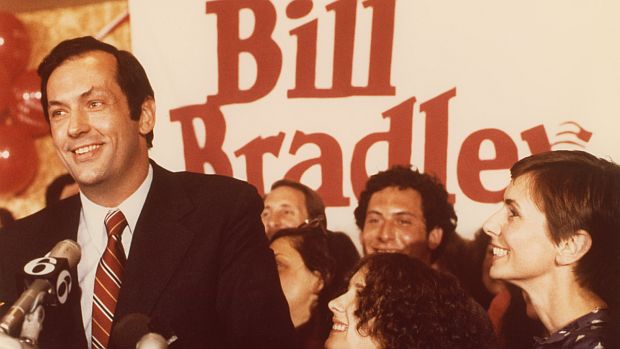
Bill Bradley, shown in what appears to be a campaign photo with a positive outcome at a political rally, perhaps during one of his earlier U.S. Senate campaigns. Photo, Gwendolyn Stewart.
Wins Re-Election
In the fall of 1984, Bradley faced re-election, and won handily with 64 percent of the vote. He still retained popularity in New Jersey from his Knicks days. But he was also attentive to his constituents. His annual Labor Day “talk-to-citizens” strolls along Jersey Shore beaches became a popular practice.Back in the Senate on tax reform, Bradley showed he could be persistent and also play a good inside game in the legislative process. “Quietly, without any publicity at all,” explained the National Journal’s Michael Barone and Grant Ujifusa, Back in the Senate on tax reform, Bradley showed he could be persistent and also play a good inside game in the legislative process.“Bradley met constantly with House members, starting with Ways and Means Chairman Dan Rostenkowski; he even played basketball with younger House members.” Brad-ley, in fact, played a key role in getting the bill through Ways and Means and the House, which Rostenkowski readily acknowledged. And when the bill stalled in Senate Finance Committee, as Senators tried to save pet preferences, it was Bradley’s ideas that reportedly inspired Chairman Bob Packwood (D-Or) — “over a pitcher of beer” — to come up with the lower rates that eventually produced a bill. The result, after some usual legislative wrangling, was the Tax Reform Act of 1986. It overhauled the federal tax code, reducing the tax rate schedule to just two brackets,15 percent and 28 percent, and eliminated many deductions.
In his senate career, Bradley was also a key supporter of environmental protection measures, various liberal causes, and political reform. But he sometimes broke ranks with his party, as he did with his initial support for Ronald Reagan’s policy of aiding the Contras in Nicaragua. But Bradley also led, or was a major player in, other key areas — reform of child support enforcement; health problems of children related to lead-poisoning; campaign finance reform; re-apportionment of California water rights; federal budget reform; federal deficit reduction.
Presidential Buzz
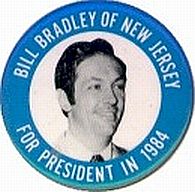
A few party insiders offered Bradley’s name in 1984.
In 1992, Bradley had again been urged to run for President. Some thought it was the perfect time for him, as no Democrat was then a sure thing. Among those who urged him to run at the time were Hollywood moguls Michael Eisner and Michael Ovitz, and others as well. He later decided against it, as his daughter was still young. However, after former Arkansas Governor Bill Clinton was closing in on the 1992 Democratic presidential nomination, Clinton aide, Warren Christopher did approach Bradley in a private meeting about the vice presidential slot, which Bradley declined. Back in the Senate, Bradley in the 1990s focused on civil rights and reforming federal water allocation in the American west, among other issues.
During the 1990s, Bradley also had his share of personal travail. He lost two close college friends to suicide, and another to liver cancer. His wife was diagnosed with breast cancer in 1992 and later had a double mastectomy and chemotherapy, emerging cancer-free thereafter. Both his parents passed on in 1994-95. All of this would figure into a personal memoir he would begin writing in 1995.
In 1996, he opted not to run for re-election to the U.S. Senate, publicly declaring American politics “broken,” as he had watched, among other things, his own party dismantle some of the tax reforms he had previously worked to enact into law. By June of that year, Bradley published the memoir he’d been working on, entitled Time Present, Time Past, in which he covered his own personal life, his basketball career, and his 18 years in the U.S. Senate, also offering his views on the issues of the day. The book became a bestseller in the summer and fall of 1996, and a paperback edition followed in January 1997.
In the book, Bradley covered topics ranging from campaign finance and tax reform, to water and land use issues, racism, and the national economy. He also focused on the difficulties that middle-class Americans faced in adjusting to downsized work force and stagnant wages. He relayed how, as Senator, he had traveled the length and breadth of the country, visiting nearly every state at one time or another and meeting all kinds of people. He wrote, in part:
“…Sometimes during these campaign journeys I encountered the fruits of my legislative efforts in the U.S. Senate, for which I was either damned or praised, picketed or presented awards. I also came face-to-face with unmet needs of Americans who were living in poverty, many of them paralyzed by self-doubt and terrorized by violence: “…In those pockets of America, I was reminded that I am in politics to take action, to stop suffering, to promote opportunity….” I saw mothers in urban America afraid to send their children to school through neighborhoods controlled by gangs; families in Appalachia living bone-chilling poverty with their Scoth-Irish independence beaten down; colossal failure of our Native American reservations. I saw fear of the future in the faces of middle-aged men who had lost their jobs; what they thought would never change had disappeared, and they had nowhere to go. In those pockets of America, I was reminded that I am in politics to take action, to stop suffering, to promote opportunity. Without a new approach and more resources, the cycle of despair in the inner cities, in Appalachia, in the Dakota badlands, would never be broken. Without more good-paying jobs, the hopes of middle-class families would never be realized…”
Bradley was no longer a U.S. Senator from the state of New Jersey, but he was thinking well beyond that now. In 1997-1998 he also had appointments at the University of Maryland, Notre Dame and Stanford where he lectured and led conferences on the issues of the day. On the speaking and consulting circuit he did O.K. as well, garnering $1.6 million in speaking fees from banking, insurance, health, high-tech, communications, and real estate interests. He earned $430,000 in consulting work for J.P. Morgan, Morgan Guaranty and the Gartner Group, a technology services company. He was also a CBS television weekend commentator for one year, receiving $47,000.
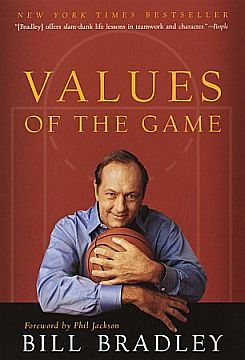
Bill Bradley’s book on ‘basketball values’ – also of some help in his presidential bid. Click for copy.
Then in January 1999 came another book from Bradley, Values of the Game. On its surface, this was a book about basketball and the life lessons Bradley found there. It is organized around ten major themes with corresponding story essays — Passion, Discipline, Selflessness, Respect, Perspective, Courage, Leadership, Responsibility, Resil-ience and Imagination.
In this book, Bradley wrote about competition and teamwork, the “unselfish pass,” the individual courage to risk a last-second shot; responsibility to teammates, coaches, and fans; how it felt to face a hostile crowd; the value of hard work, and more.
The book received a number of kind and approving reviews: “[Bradley] has written a love letter to basketball…,” wrote one reviewer in the Boston Globe. “[I]t is every bit as prescient, thoughtful, and just plain valuable a work as you’d expect from a man who never approaches any task without a full commitment.”
People magazine’s blurb — later appended to the paperback cover — said: “[Bradley] offers slam dunk life lessons in teamwork and character.” The Dallas Morning News added: “This may be the single most important present a parent can give a sports-loving child.”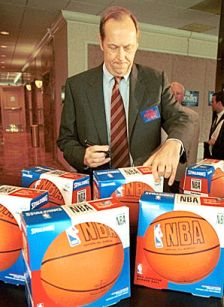
Bill Bradley autographing NBA basketballs in 1999 during his presidential bid. AP photo.
This book was also a reminder to many Americans that Bill Bradley was one of them, a regular guy who had played an American game, had worked hard, and also had some good ideas about national values and national direction. Was it a primer for a presidential run? Not a wonkish tome, certainly, but one that helped endear this guy to the great American Middle — especially a guy who had played memorable college and pro basketball. That’s not a bad thing, of course. And it certainly didn’t hurt that Phil Jackson — who had played pro ball with Bradley on the New York Knicks and was also well known as the coach who had taken Michael Jordan and the Chicago Bulls to NBA championships — wrote the book’s forward and was mentioned by name on the book’s cover.
Later, in January 2000, after Bradley had formally announced that he would seek the Democratic Party nomination for President, the book’s publisher released the paperback edition of Values of The Game just as the early Democratic presidential primaries were beginning, noting the following:
“…As the Presidential run heats up with the start of the primary season in New Hampshire on February 2, the attention to the candidates and their issues will become even more intense. Values of the Game is an ideal book to understand Bill Bradley, the man and the candidate. The values that Bill speaks of so frequently during his campaign speeches are reflected in Values of the Game–responsibility, discipline, passion, selflessness and respect….”

'Bradley for President' campaign button.
Run For President
In September 1999, Bill Bradley formally began his bid for president in the year 2000 national elections by seeking the Democratic party nomination in the primaries.
In making his bid, Bradley ran in opposition to incumbent Vice President Al Gore, the favorite for the party’s nomination. Bradley campaigned as the liberal alternative to Gore, taking positions to the left of Gore on a number of issues, from universal health care and the environment, to gun control and campaign finance reform.
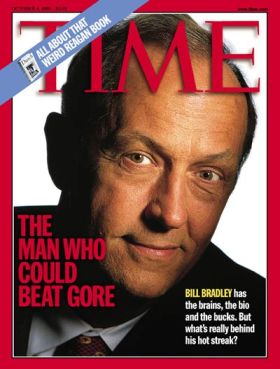
Bradley on Time cover, October 4, 1999, with editors’ note: ‘Bill Bradley has the brains, the bio, and the bucks. But what’s really behind his hot streak?’. Click for copy.
By early October 1999, Bradley was on the cover of Time magazine, with the editors posing him as “the man who could beat Gore.” Bradley came under increased media scrutiny during his run. The Washington Post published an in-depth, six-part series covering his life before politics, his time in the Senate, and his views on the future. In one part of the series, Post reporters Barton Gellman and Dale Russakoff musing on why Bradley wanted to be president wrote: “He wanted the nation to face its short- comings — child poverty, racism, tens of millions of people without health insurance, a political system mortgaged to big money and base instincts — and right them.”
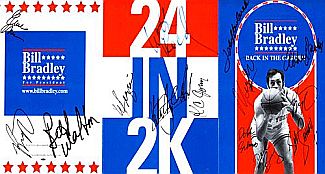
Bill Bradley year 2000 fundraiser program, Madison Square Garden, signed by Bradley’s former Knicks teammates. Campaigning for President exhibit, Museum of the City of New York / Museum of Democracy.
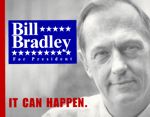
Bradley campaign poster.
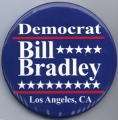
Bill Bradley button, Dem Convention, L. A.
Looking Ahead
After his run for the Democratic Presidential nomination failed, Bradley didn’t sulk. Instead, he published a short book of essays in September 2000 under the title The Journey From Here, a forward-looking book in which he offered his ideas for America’s future. “The fact that I didn’t succeed in winning,” he wrote, “doesn’t make the cause less just or the fight less honorable.” His essays covered the issues he had campaigned on — health care, campaign finance reform, poverty, econom- ics, racial issues, foreign affairs, among others. With the campaign fresh in his mind, and the national election still in the balance, Bradley wrote about a new politics not freighted with big money, political infighting, or pandering to public opinion. However, with that Fall’s contested national election result, between Al Gore and George W. Bush, the battle lines of party politics only hardened.
In October 2002, Bradley turned down a last-minute offer from New Jersey Democrats to replace Senator Robert Torricelli on the ballot. Torricelli decided not to make a re-election bid, as he was then under a cloud of suspicion regarding former campaign donations. Frank Lautenberg, became the Democrat’s nominee and Senator. By 2004, some thought Bradley might again run for President, but he did not make that move and showed little interest in returning to political office. In January 2004, he endorsed Howard Dean for President in the Democratic primaries. He also helped Dean to become head of the Democratic National Committee after the 2004 election.

Bill Bradley with the late Tim Russert of NBC’s ‘Meet the Press,’ March 2007 in Wash., DC, discussing Bradley’s book, "The New American Story." Photo, Chip Somodevilla, Getty Images.
Bradley continued to publish his own books, including The New American Story, released in March 2007 in which he expanded on his last book with proposals ranging from free college tuition for the top third of every high-school class, to banning trans fats. But at the core of his 2007 book was the idea that country comes before political party. In 2008, Bradley supported Barack Obama in the Democratic primary, announcing for Obama in January 2008. He also campaigned for Obama and appeared on political news shows as a surrogate. Following Obama’s election, Bradley was mentioned as a potential contender for Director of the CIA, and later, as a possible Secretary of Health and Human Services, although others later filled those slots.
Voice To Others
Bill Bradley’s story shows how a famous sports career can be parlayed into politics, and also how adding book publishing to the mix can help expand and auger that celebrity and build beyond it. Although a sports celebrity and nationally-known political figure for most of his life, Bradley in recent years has turned his notoriety and personal efforts toward highlighting the lives of others. In 2007, Bradley became associated with the StoryCorps project, which is aired on National Public Radio’s Morning Edition show. StoryCorps collects the stories of everyday Americans for the American Folklife Foundation.Bradley also hosts his own radio show, American Voices, a weekly show on Sirius Satellite Radio that highlights the accomplishments of Americans both famous and unknown. This show includes interviews with everyday Americans who have interesting jobs, or who have made unique or helping contributions with no expectation of financial return. His guests have also included well-known Americans such as actor Hal Holbrook, singer Bonnie Raitt, and former boxer George Foreman. Bradley’s books, speeches, Op-Eds, and other details can be found at his website. In early 2009, Bradley’s name was also mentioned as a possible replacement for retiring NBA commissioner David Stern. In 2023, he released an autobiographical film, Rolling Along, produced with Spike Lee
See also at this website the “Politics & Culture” page or the “Annals of Sport” page for additional story choices in those categories. Thanks for visiting – and if you like what you find here, please make a donation to help support the research, writing, and continued publication of this website. Thank you. – Jack Doyle
______________________________
|
Please Support Thank You |
Date Posted: 28 May 2009
Last Update: 24 March 2024
Comments to: jackdoyle47@gmail.com
Article Citation:
Jack Doyle, “Bill Bradley, 1960s-2009,”
PopHistoryDig.com, May 28, 2009.
______________________________
Basketball Books at Amazon.com…
Sources, Links & Additional Information
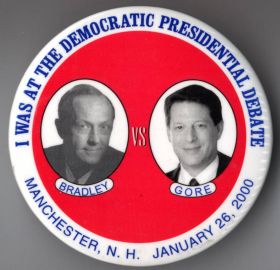 Campaign button commemorating the Bradley-Gore Democratic Presidential debate in Manchester, New Hampshire, January 26, 2000. |
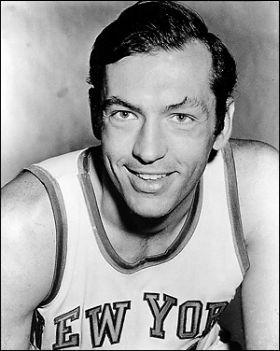 Bill Bradley, New York Knicks photo. |
Bill Bradley’s radio show, American Voices, airs on Sirius Satellite Radio Channel 102 on Sundays at 5:30 am, 6:30 am, 7:30 am and 9:30 am EST as well as Mondays at 5:00 am, 7:00 am, Noon and 2:00 pm EST.
Frank Deford, “An Ivy Leaguer Is The Best,” Bill Bradley cover photo and story, Sports Illustrated, December 7, 1964.
John McPhee, A Sense of Where You Are: Bill Bradley at Princeton, New York: Farrar, Straus & Giroux, 1965.
Curry Kirkpatrick, “An Answer To The Bradley Riddle,” Bill Bradley cover photo and story, Sports Illustrated, Volume 28, Issue 11, March 18, 1968.
“Bill Bradley Considered For Race for Congress,” New York Times, Wednesday, August 29, 1973, p. 81.
“Bill Bradley Withdraws As Possible Candidate,” New York Times, Thursday, April 4, 1974, p. 45.
Bill Bradley, Life on the Run, Quadrangle, 1976.
Joan Ryan, ” ‘Life on Run’ for Bradley Summed Up With Insight,” Washington Post, April 23, 1976, p. C-1.
Jonathan Yardley, “The Knick Of Time: Book Review: Life on the Run, By Bill Bradley,” Washington Post, Book World, May 9, 1976, p. K-7.
Joseph F. Sullivan, “Bill Bradley: New Game in Town,” New York Times, November 20, 1977, Sunday, Section: New Jersey Weekly, p. NJ-8.
“Bill Bradley,” Wikipedia.org.
Joseph F. Sullivan, “Politics: For Bill Bradley, A New Target,” New York Times, New Jersey Opinion, Sunday, February 19, 1978, p. NJ-32.
Evan Thomas, “A Sense of Where He Is,” Time, June 30, 1986.
Jeffrey H. Birnbaum, Showdown at Gucci Gulch, 1987.
Michael Barone and Grant Ujifusa, The Almanac of American Politics 1988, Washington, DC: National Journal, 1987, pp. 731-733.
“An Interview with Bill Bradley,” The Charlie Rose Show, Thursday, January 25, 1996. Synopsis: “U.S. Senator Bill Bradley of New Jersey discusses his memoir, Time Present, Time Past, which chronicles his life as a basketball player for the New York Knicks, his career in politics, and his personal goals, which may include a run for the presidency, after retirement.”
Eric Pooley, “The Priest At The Party,” Time, April 27, 1998.
Thomas B. Edsall & Helen Dewar, “Bradley as Leader: A Mixed Assessment; Senate Record Includes Key Achievements, Time on Sidelines,” Washington Post, June 25, 1999, p. A-1.
David Corn, “Bill Bradley: Can He Get Into the Game?,” The Nation, July 5, 1999.
David S. Broder, “Bill Bradley: Loping and Listening,” Washington Post, July 28, 1999 p. A-23.
Thomas B. Edsall, “From the Left, Bradley Enters Race; Democrat Formally Declares With Pledges on Poverty, Health Care,” Washington Post, September 9, 1999, p. A-1.
David S. Broder, “Environmental Group Will Endorse Bradley; Ex-Senator Termed ‘Superior’ to Gore,” Washington Post, September 14, 1999, p. A-12.
David S. Broder, “Gore, Taking Bradley Seriously, Seeks Advantage in ‘Tough Fight’,” Washington Post, September 30, 1999, p. A-1.
Eric Pooley, “The Art of Being Bradley,” Time, October 4, 1999.
John F. Dickerson/Washington, “The Problem With Bradley’s Big Idea,” Time, October 11, 1999.
Howard Kurtz, “Bill Bradley’s Senate Record: The Untold Story,” Washington Post, October 18, 1999, p. C-1.
Nancy Gibbs, “What Kind Of Democrats Are They?,” Time, November 1, 1999.
Eric Pooley, “Gore in Your Face,” Time, December 20, 1999.
David S. Broder, “Bradley Dismisses His Heart Ailment; He Blames Episode on Skipped Medication,” Washington Post, December 12, 1999, p. A-28.
Barton Gellman & Dale Russakoff, “A Mother’s Ardent ‘Project’ — Disciplined Young Bradley Was Coached to Achieve,” (Part 1 of 6), Washington Post, December 12, 1999. (also published under headline, “Big Hopes for a Small-Town Boy,” Washington Post, December 12, 1999).
Barton Gellman & Dale Russakoff, “Driven Scholar Athlete Paid a Price to Meet Demands” (Part 2 of 6), Washington Post, December 13, 1999. (also published under headline, “At Princeton, Bradley Met Impossible Demands,” Washington Post, December 13, 1999).
Barton Gellman & Dale Russakoff, “A Private Journey Comes Full Circle: Rebellion and Return,”- (Part 3 of 6), Washington Post, December 14, 1999.
Barton Gellman & Dale Russakoff, “A Religious Journey With Twists and Turns: Moral Foundations,” (Part 4 of 6), Washington Post, December 15, 1999.
Barton Gellman & Dale Russakoff, “In the Senate, Prepping for the Presidency: Picking His Shots,” (Part 5 of 6), Washington Post, December 16, 1999. (also published under headline, “In the Senate, Big Issues, and a Close Call,” Washington Post, December 16, 1999).
Barton Gellman & Dale Russakoff, “Meandering Toward A Destination Certain: The Ex-Senator Examines His Life,” (Part 6 of 6), Washington Post, December 17, 1999. (also published under headline, “Bradley: Meandering Toward a Candidacy,” Washington Post, December 17, 1999).
Eric Pooley, “How To Tell Them Apart.” Time, January 17, 2000.
Eric Pooley, “A Sense Of Where You’re Not,” Time, January 31, 2000.
Eric Pooley, with Karen Tumulty & Tamala M. Edwards, “How Al Came Back To Life,” Time, March 13, 2000.
Barbie Presents: Thumbelina hd Editorial, “A Metropolis of Poor Children,” New York Times, Thursday, August 17, 2000.
Desmond Bieler, “The Running Men: Bill Bradley,” Washington Post, Monday, November 3, 2008, p. E-2.
